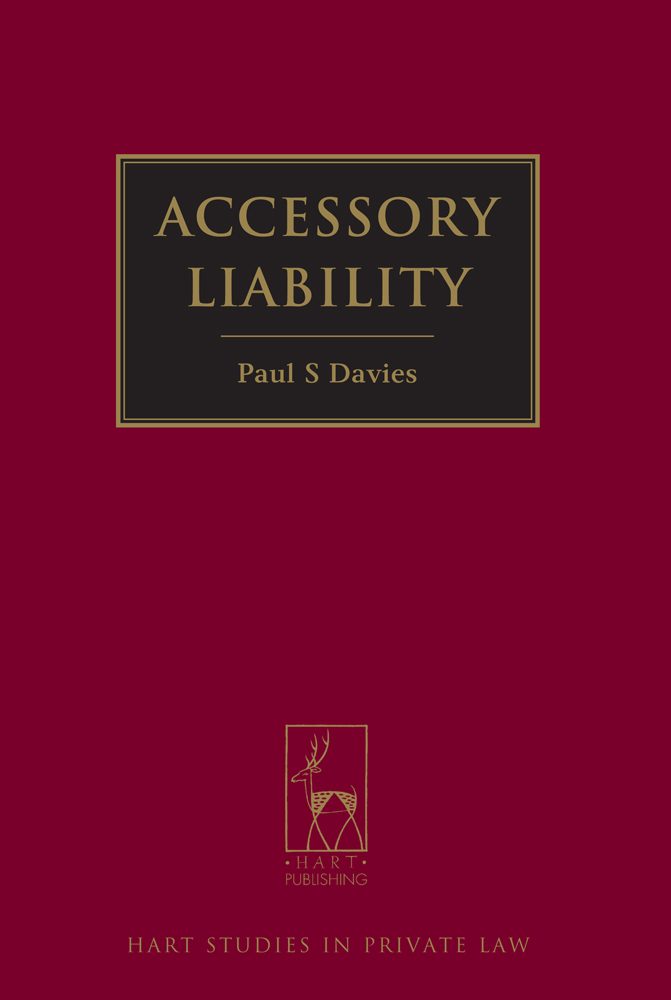
Accessory liability in the private law is of great importance. Claimants often bring claims against third parties who participate in wrongs. For example, the ‘direct wrongdoer’ may be insolvent, so a claimant might prefer a remedy against an accessory in order to obtain satisfactory redress. However, the law in this area has not received the attention it deserves.
The criminal law recognises that any person who ‘aids, abets, counsels or procures’ any offence can be punished as an accessory, but the private law is more fragmented. One reason for this is a tendency to compartmentalise the law of obligations into discrete subjects, such as contract, trusts, tort and intellectual property.
This book suggests that by looking across such boundaries in the private law, the nature and principles of accessory liability can be better understood and doctrinal confusion regarding the elements of liability, defences and remedies resolved.